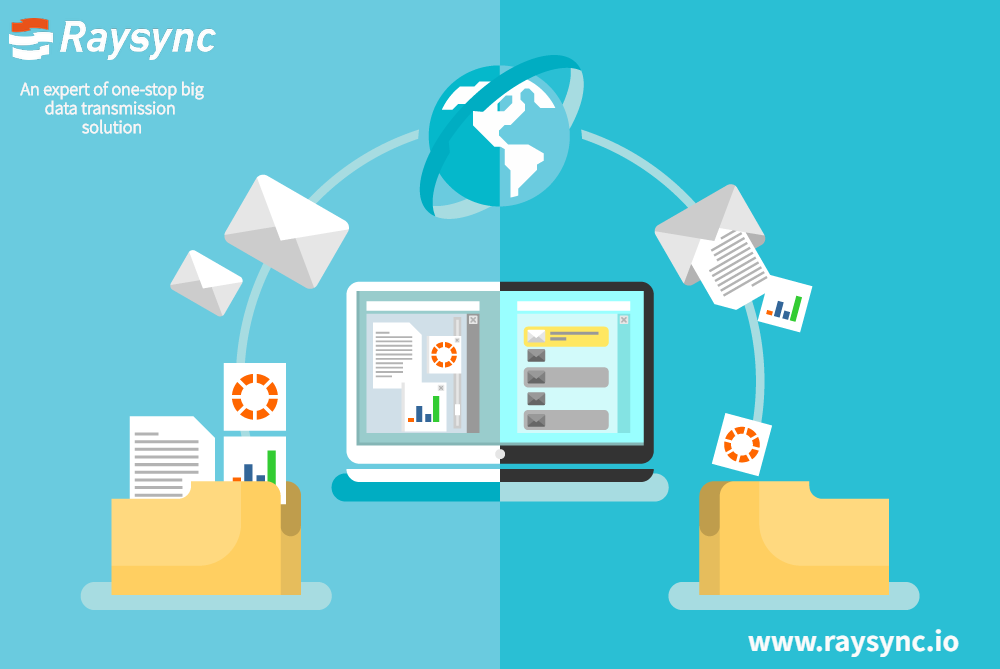The Best Way to Send Large Files
June 28, 2022Transferring large files is critical for most businesses, but how do you ensure that the files are suitable for the right person, and not others? When considering factors such as security, bulk transfer and tracking, companies need more than a one-stop solution, but also need to share files and send large files with employees, customers and trading partners.
Why is it So Hard to Send Large Files?
Enterprise send large file transfer status
1. Slow Transmission Speed
a. Large file transmission In the transmission process, there are transmission problems such as low transmission speed and high delay.
b. Low bandwidth utilization, slow upload, and download of large files, which reduces the efficiency of the enterprise.
For example, enterprise cross-region employee file transfer, enterprise, and cross-region customer file transfer, enterprise cross-region IT system file transfer.
2. High Latency and Easy Packet Loss
Cross-region file transfers can easily cause long delays, serious packet loss, and low rates.
3. Security Flaws
a. Using FTP transmission mode, too many open transmission ports, the firewall is subject to attacks such as hackers, virus attacks, resulting in transmission security is not guaranteed.
b. Failure to transmit large amounts of data promptly causes data errors, and manual error checking is too cumbersome.
c. Sending large files in the form of receiving and sending hard disks. Once lost, the consequences are unimaginable.
d. Too frequent FTP transfers cause firewalls to be attacked, resulting in information leakage.
e. A large number of files cannot be transferred in one go, and files are easily lost.
4. Lack of Stability Large files cannot be transmitted completely, and packet loss is likely to occur during the transmission process, which cannot guarantee data integrity.
How to Send Large Files?
Enterprise teams need to collaborate across the globe for long-distance cooperation to distribute, share, and exchange TB-level data files, which requires high-speed transmission of big data around the world. Fortunately, whether you send large files to recipients or let users access them in the cloud, there are many options on how to share large files. Depending on your use case, some solutions may be more appropriate than others.
Raysync is not affected by distance, file size, and network conditions. The transmission speed can be 100 times faster than FTP, which solves the problems of security and transmission efficiency.
The deployment is simple, a pure software solution. There are different solutions for different transfer needs and scenarios.

Raysync adopts C/S mode, the server is built on the company's server, and the data is stored on the company's server. In the transfer process, UDP + TCP check and AES-128 data encryption are used to improve the transmission efficiency of the transmission enterprise. In the case of a bad network environment, UDP transferring has higher applicability than TCP transferring.
To fight with this worldwide crisis, Raysync rolled out a free trial to help your business better respond to the challenges.
You might also like

Industry news
December 24, 2022Cross-border file transfer and transnational transfer have to face the network transfer environment of ultra-long distance and weak network. If you want to transfer files fast, read on to learn how professional file transfer software Raysync transfers.

Industry news
October 26, 2020Through the AES-256 encryption algorithm, the whole process of SSL encryption ensures that the R&D data, design drawings, marketing materials, and other contents will not be leaked during the uploading and downloading process.

Industry news
June 10, 2020FTP traditionally has been the most common way to exchange files over the internet for years.